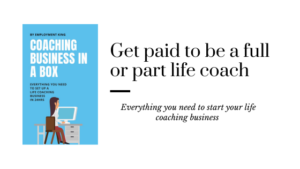Beware!!! These interview fails can happen to you, learn from their mistakes and prepare for interview success.
Scared to Death

You have to agree that the job interview is one on the scariest situations you can put yourself in. Interviewers will often feedback that nervous interviewees constantly sweat, tremble and shake.
But for one 17yr old interviewee, having the interview shakes was a life saver. This young nervous interviewee thought nerves had gotten the better of him; he started to shake prior to the interview, in the interviewee, the shakes got worst, so bad the interviewer started to become concerned.
He shook so much throughout the interview, that he was rushed to hospital, later to find that he had a massive Brain Tumour. Shaken Stevens eat your heart out, read how this amazing but terrifying interview saved his life.
Source
iPhone Owner Make The Worse Employees

A crazy company rejected a job applicant for owning an iPhone. The interviewer spotted the interviewee in the waiting area accessing his iPhone.
The crazy employer wasn’t concern that the applicant had a phone in his hand; he was disappointed that it was an iPhone saying “Students who have iPhones don’t work. Everything you have was bought by your parents. You haven’t bought anything by working yourself. You are wealthy and can’t stand the stress. Working at our company is tough. It calls for someone who can take the pain and suffering.”
Read more about this frustrated interviewer with incredible prejudices.
Source
Slow Worker for Fast Food Joint

An American student went for a job interview in the famous fast food chain McDonalds, famous for its Big Mac and speedy service, with this in mind the interviewee didn’t understand the importance of matching the employers criteria, answering one question by saying “speed in the workplace wasn’t his strongest point.”
Finally, the interview was lost when he followed this damaging statement up by telling the employer how he wanted to be an English teacher, not a fast food worker and finally topped the interview off by stating that he could only work certain days.
Read how not to pass the job interview here.
Source
Cat Kills the Interview

Telephone interviews are great, you don’t have to get up early, you don’t have to shave and you don’t even have to get dressed. You do have to remain professional….and lock your pets up. During a phone interview with RBS, the interviewee was set a complex maths question, while the interviewer listens on the other end of the phone.
Surprised, the interviewer heard, “You f*cking c*nt!” shouted down the phone by the applicant. Shocked the interviewer hung up the phone, ending the interview.
What the interviewee couldn’t see was the actual cause of the outburst, the interviewees cat had crept up a clawed her leg, which was the real reason for the outburst, not the complex interview question.
Source
Murder Arrested at the Job Interview

No matter how much experience and skills you have, one sure way to guarantee that you won’t receive a job offer during a job interview is when you get arrested for murder.
An unnamed girl accused of murdering two young men, was wanted by police who could not locate her, but they knew that the girl had a job interview due and waited for the girl to attend the job interview before arresting her – to the surprise of the interviewees
Source
The Heineken Interview

How would you react if your interview started by the interviewer wanting to hold your hand, crazy I know, later after a couple of general interview questions the interview stands up and faints. You get up to help him, only then the fire alarm goes off.
As your led outside a team of firemen are trying to get a stuck potential co-worker to jump out of the window onto the safety net, but there’s not enough fireman to hold the net, what would you do? Help out, watch or just go home? This is one of the best but bizarre job interviews ever.
Watch this amazing video:
Source
Interviewer Eats his Dinner In the Interview
Good interviewees know the signs of when the interviewer is getting bored, but none have been this obvious.
Luke went to the interview unprepared, the interviewer quickly realised this and became quickly bored of the interview. After a couple of interview questions and to the surprise of Luke, the interviewer put his feet up on the desk and started to eat his lunch, if that wasn’t bad a couple of minutes later and half way through a sandwich, the interviewer ask “you’re still here?”
Find out more about the worst interview ever.
Source
![]()












